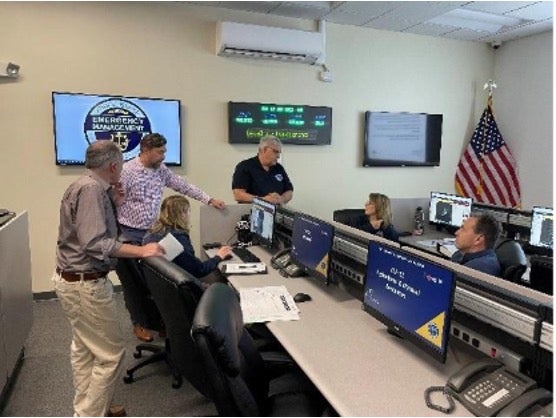From Design to Decision-Making: Identifying the Barriers to Coastal Storm Decision Support Development and Use
Advancements in coastal storm modeling and the technological advances have resulted in the proliferation of decision support tools (DSTs) designed to support emergency managers (EMs) with preparing for and respond to such events. Emergency managers can use these tools to inform their decision-making as a storm approaches the coast. Yet, despite their prevalence, efforts by scientists to develop and implement new DSTs often fall short of in meeting the needs of EMs and therefore struggle to achieve widespread adoption and use.
This dissertation evaluates the development and implementation of DSTs for management of coastal storms, specifically focusing on the challenges faced by tool developers and EMs when developing and implementing new tools. It begins by reviewing existing literature on coastal storm DSTs, highlighting a significant gap between the tools being developed and their use by EMs. Interviews withs with tool developers and EMs highlighting the barriers creating the gap between DSTs development and use. Finally, a case study of the Coastal Hazards Analysis Modeling and Prediction (CHAMP) system is conducted, providing further insight into the barrier challenging efforts to co-develop and implement new DSTs. Findings reveal a persistent disconnect between tool developers and EM related to gaps in existing funding, resources, and staffing, in addition to challenges related to end-user engagement and the transition of DSTs into operational tools for real-time use.
Findings of this research contributed to addressing a persistent challenge faced by scientists in academia and government agencies: developing DSTs that meet decision-maker needs and achieving widespread adoption and use. The results of this study contribute to a better understanding of the factors causing efforts to develop and implement DSTs to fail. It identifies existing gaps and pitfalls to DST development and implementation approaches, providing critical insight for future efforts to incorporate when developing DSTs. The barriers we have identified through this research can be used to inform the guidance of a standardized approach to developing and implementing decision support tools that address the varying gaps between science and practice in varying management contexts. This research is part of the Marine Affairs Coastal Resilience Lab at the University of Rhode Island.
Project Team:
Principal Investigator: Prof. Austin Becker, URI Dept. of Marine Affairs (abecker@uri.edu)
Research Assistant: Noah Hallisey, URI Dept. of Marine Affairs (halliseyn@uri.edu)

